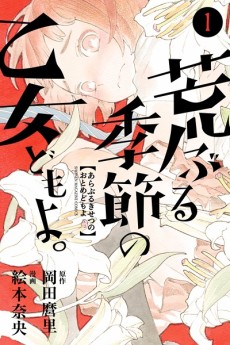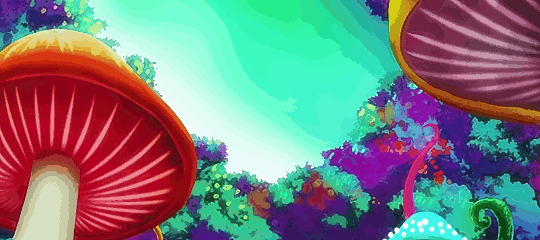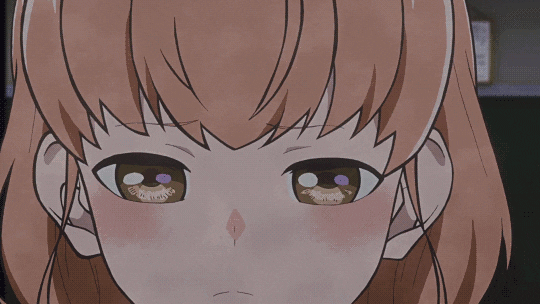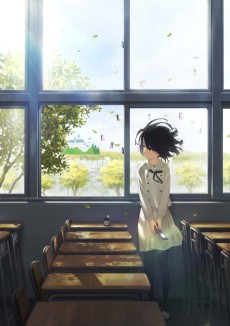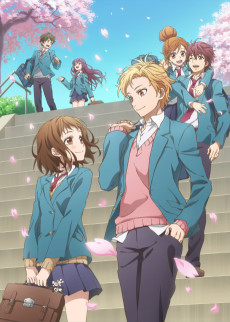ARABURU KISETSU NO OTOME-DOMO YO.
STATUS
COMPLETE
EPISODES
12
RELEASE
September 21, 2019
LENGTH
24 min
DESCRIPTION
The girls in a high school literature club do a little icebreaker to get to know each other: answering the question, "What's one thing you want to do before you die?" One of the girls blurts out, "Sex." Little do they know, the whirlwind unleashed by that word pushes each of these girls, with different backgrounds and personalities, onto their own clumsy, funny, painful, and emotional paths toward adulthood.
CAST
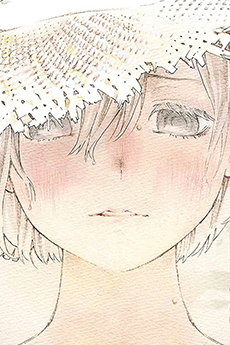
Niina Sugawara
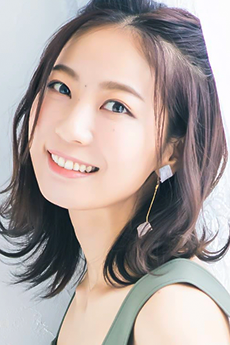
Chika Anzai
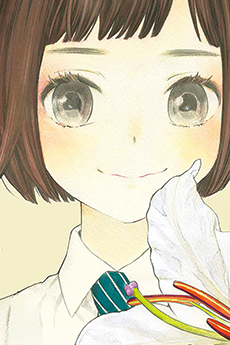
Kazusa Onodera

Hiyori Kouno
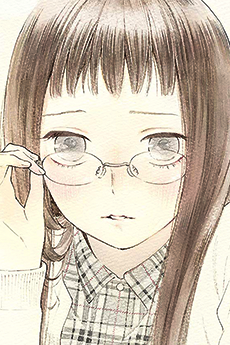
Rika Sonezaki
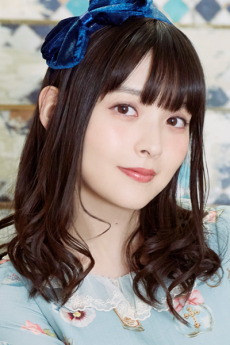
Sumire Uesaka
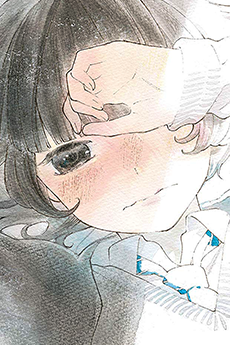
Hitoha Hongou

Tomoyo Kurosawa
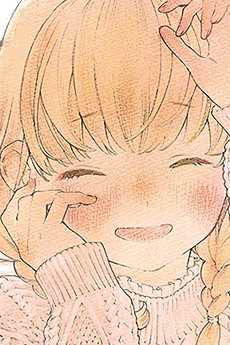
Momoko Sudou

Momo Asakura

Shun Amagi
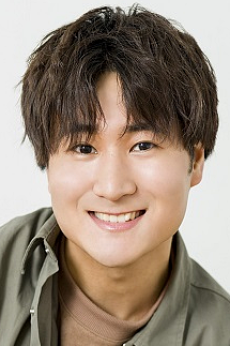
Yuuya Hirose

Izumi Norimoto
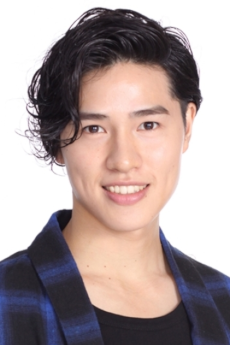
Shinba Tsuchiya
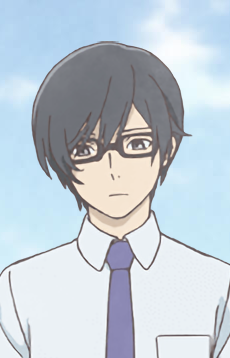
Tomoaki Yamagishi
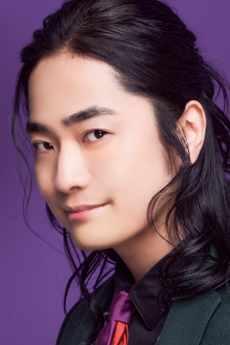
Jun Fukuyama
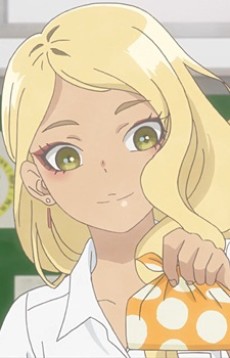
Sonoe Juujou

Haruka Tomatsu
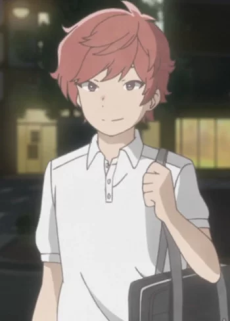
Satoshi Sugimoto
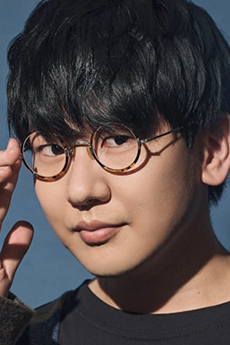
Natsuki Hanae

Hisashi Saegusa
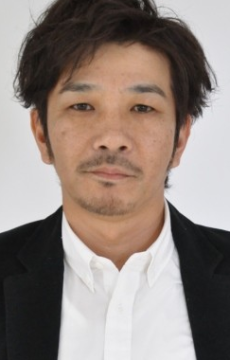
Shunsuke Sakuya
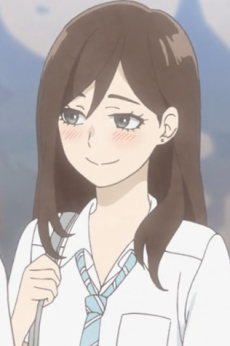
Yuuko Takeyama

Natsuko Hara
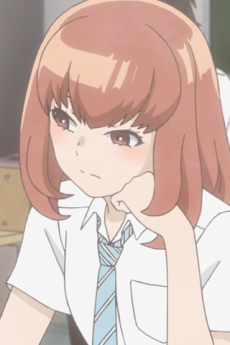
Emi Asada
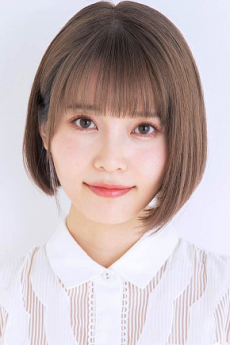
Nichika Oomori
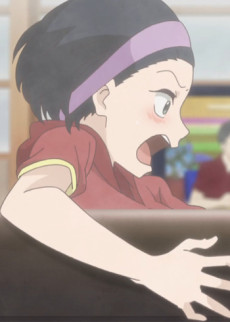
Hitoha Ane
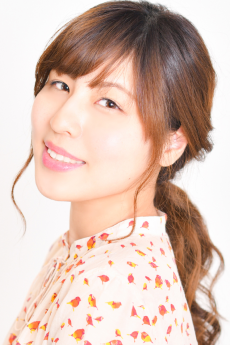
Rika Kinugawa
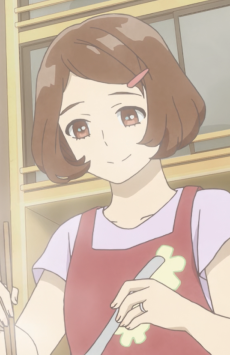
Kazusa no Haha
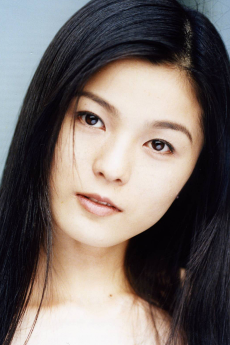
Ryouka Yuzuki
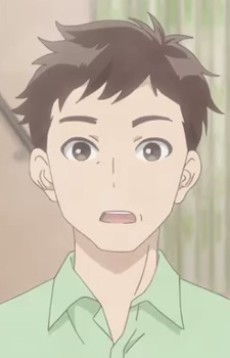
Kazusa Chichi
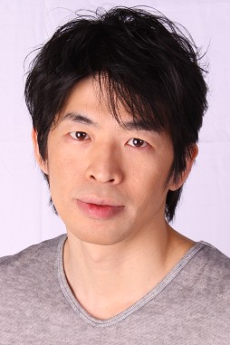
Masamichi Kitada
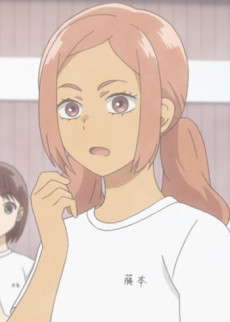
Fujimoto

Rika Kinugawa

Tomoaki's Father

Nobuaki Kanemitsu
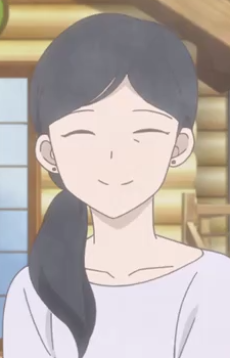
Tomoaki's Mother

Wakana Kowaka
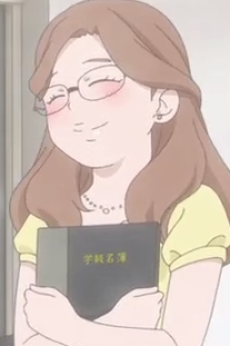
Emi Tomita
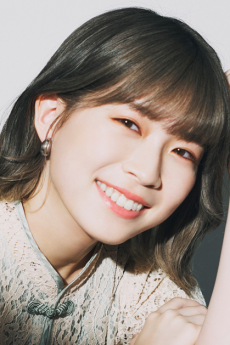
Yoshino Aoyama

Saiki
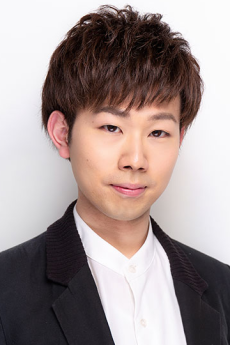
Reigo Yamaguchi
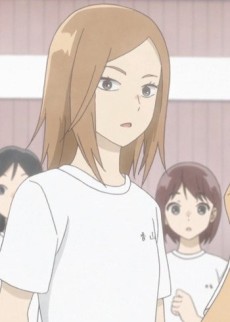
Kayama

Mai Mochizuki
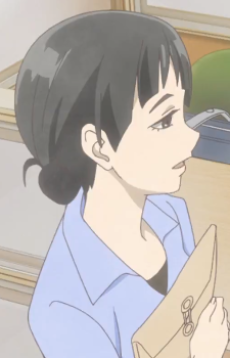
Female Editor
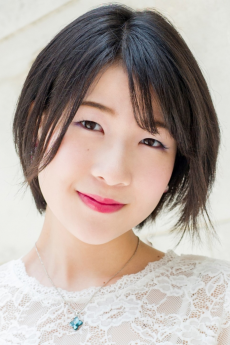
Misa Ishii
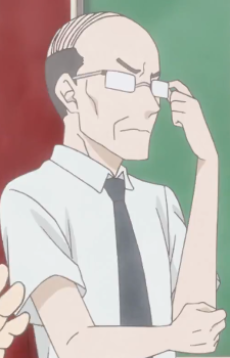
Vice Principal

Masamichi Kitada
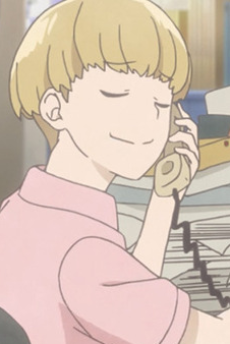
Editor
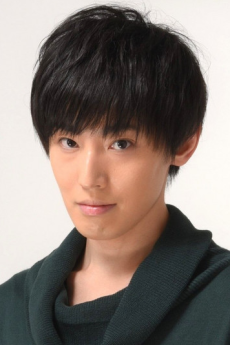
Youhei Hamada
EPISODES
Dubbed

Not available on crunchyroll
RELATED TO ARABURU KISETSU NO OTOME-DOMO YO.
REVIEWS

planetJane
95/100A meditation on the wild, crazy, colorful world of youth. From the mind of Mari Okada.Continue on AniListAll of my reviews contain __spoilers __for the reviewed material. This is your only warning.
Two years ago, I said (in a piece whose relevance will quickly become apparent), that the best anime leaves you feeling like it's changed your life. O Maidens In Your Savage Season is the latest from Mari Okada, a divisive writer known for scripts that absolutely burst at the seams with emotional intensity, and I can definitely imagine it changing someone's. It's that kind of show.
I’ve seen Okada's work called “melodramatic”, and I actually think that’s a very apt descriptor. What she understands is that melodrama is not an inherent negative, it’s a tool--like any other tone--and can be turned toward productive ends. Maidens, before it is anything else, is a wildly successful threading of the needle in that regard. Make no mistake, it is melodramatic. Sometimes extremely so, but never for no reason. Okada is very, very good at making you feel for her characters. Maidens is that skill cranked up to 11. Through all the awkwardness and mistakes, you really feel for these characters.
Okada is prolific enough that people first encounter her work in different ways--I was introduced to it via Black Rock Shooter, which I remain convinced is one of the decade’s great underrated television anime. Maidens is not as aesthetically out-there as BRS (it’s not an action series, for one thing), but they share that same tendency toward emotional rawness.
But to emphasize just that aspect of Maidens would be a mistake. The show is sold as a rom-com, which is not strictly correct (way too much happens for that to be the beginning and end of its genre classification), but it is, in addition to its bareknuckle emotional intensity, extremely funny.
The first half of the series in particular is filled with a lot of A) dirty puns and B) absolutely stellar pull-face gags. In regards to the former, HiDIVE’s translation team deserves some credit here, for managing to creatively rework the fountain of sex jokes that the show’s first half throws down and still keep them funny.
There’s also what quickly became Maidens’ first signature scene--protagonist Kazusa streaming down the street in the first episode, screaming at the top of her lungs in frustration at her inability to turn off her own dirty mind. That downright FLCLian scene is what ended up selling me hard on the series, but there’s a lot more to Maidens than just that.

Like any good dramedy, Maidens lives and dies by its characters. Our core cast consists of the five members of a high school literature club. There’s Kazusa, our female lead, and the “everygirl” of the cast. There’s Rika Sonezaki, the prudish (and secretly very maidenly) head of the club. Hongo, an aspiring author with a cybersex hobby. Niina, a beautiful former child actress who the other girls find a bit aloof and mysterious, and finally, there’s Momo who…well, we’ll get to Momo.
Each of these girls have their own character arc, and contrary to what might be expected of a standard single-cour-length 12 episode anime, they’re actually woven together pretty well. The show does not really delineate these arcs episode by episode, instead often cutting between them and divvying its episodes up into a number of different segments. Together, these congeal and tie the girls’ individual arcs into a wider whole. This is how Maidens can be the story of five girls in a literature club and also a broad commentary on the trials and tribulations that teenage girls in general face. There’s a lot going on here, suffice it to say.
It’s tempting to try to plot the arcs out one by one, but the show’s structure inherently frustrates that impulse. Take Kazusa, by far the most straightforward member of the cast, as an example. Kazusa’s arc revolves around her relationship with Izumi, her next door neighbor and childhood friend. In what ended up being another of the show’s signature scenes, Kazusa ends up wandering into his room unannounced in the first episode, and catches him masturbating. This sets off a domino effect that ends with her realizing she has feelings for him, and she starts pursuing him romantically.
That’s all well and good, but that’s only the first third or so of the series, and it’s here where the straightforwardness ends. See, to keep talking about this plotline we have to rope in Niina, who initially gets into a misunderstanding where Kazusa thinks she’s trying to steal Izumi from her. Niina, subjected to a lifetime of people assuming she’s trying to steal their man, plays into Kazusa’s assumption, and ends up actually falling for him too in the meantime.
That’s just one of many ways that Maidens twists its characters plotlines together, and this kind of interlocking is actually surprisingly rare in the medium.
None of the character arcs present here would really work without the others with the possible exception of Sonezaki’s. Her arc, where she (among other things) learns to get over her prudishness, ends up falling for and then dating a boy in her class, and reconciles with a gyaru she fought with in the first episode, is probably the one least connected to the other girls’, though even it’s not entirely separate. Plus, that gyaru gets pregnant in the show's penultimate episode, returning only in the epilogue--happily living with her partner. Maidens doesn't even let minor side characters not be involved in its main themes.
So what’s the point of all this knotty, complicated relationship stuff? Well, in a way, the knottiness actually is the point. Maidens is primarily a portrait of the infinitely multifaceted experience of being a teenage girl. The focus is demographically fairly narrow (all five members of the core cast are roughly the same age, are Japanese cisgender girls, all go to the same high school in an urban area, etc. etc. etc.) but the experiences here resonate incredibly well. One of Okada’s talents as a writer is using the specific as a signifier of the general. Melodrama transfigured into genuine pathos.
For example: Niina’s arc involves a lot of internalized misogyny, she’s dealt with an entire life of people assuming awful things about her and the way she copes with that is by willfully falling into a “bad girl” role and actively thwarting attempts to help her by putting on an air of maturity and of being above the situation. The specifics include her past as a childhood actress and a history with a pedophiliac director
who is up there with Suishou from Granbelm as far as being among the most actively hateable characters of the Summer 2019 season. The generalities--that internalized misogyny, pretending to be above the things that go hand in hand with your own age--are going to be broadly relatable to many people, and it’s on that intuitive level that Maidens marks its first major success. You will end up seeing yourself in at least one of the core cast, if not many of them.
The other element to all of this is the direction. Maidens’ visual symbolism is so strong that it’s occasionally on-the-nose. There’s an absolute ton of train symbolism. Kazusa’s main squeeze Izumi is absolutely obsessed with the things, and while his railfan characterization is endearing on a surface level, picking that method of transportation in particular is not an accident. Using trains entering tunnels as a visual metaphor for sexual intercourse dates back to the censorship-happy postwar era of Hollywood, if not farther, after all. It’s here we have to shout out director Masahiro Ando too, because while this is ultimately Okada’s brainchild, it’s Ando who makes all of this work in the moving world of anime.
Both quiet one-offs like Kazusa literally reflecting in a mirror while reflecting on her actions, and longer setpieces--Niina walking hope as a barfly drunkenly sings in a nearby karaoke parlor, the entire finale in all of its blunt color symbolism--work incredibly well, and the show wouldn’t be half as engaging without the strong visual element backing it up. That the animation comes from the still-young Studio Lay-duce (who last year also threw their weight behind RELEASE THE SPYCE) makes me hope they get more projects like this. They’re damn good at it.
Visual side note here: all of the cast are great, but Hongo (whose plotline where she ill-advisedly plays a game of what This Week In Anime columnist Micchy called a game of "sex chicken" with one of her teachers is the boldest risk the show takes, that's a hard line to walk) probably has the best expressions. Not bringing this up at all would feel like a crime.
There’s one last thing we need to give Maidens credit for, which is having a canonically queer character in a show that’s not specifically about that. Momo’s arc--to greatly simplify things--involves her coming to the realization that she’s attracted to Niina, and, consequently, girls in general, not boys. Maidens is not really “Momo’s story”, but the show makes room for her regardless, and that she’s focused on at all really makes the series’ inclusive message hit that much harder. That she’s a great character on top of that is just icing on the cake.
To put it plainly, Maidens is the second anime in as many years to fall into a very specific, very exciting archetype. Shows driven primarily by women as creative forces, about the experiences of young women, that effortlessly transcend the confines of the genres they initially appear to be. For last year’s A Place Further Than The Universe, that was the school life genre, which it discarded early on to blast into a full-on adventure series. For Maidens, the transition is quieter. By the time you realize that it’s no longer playing by standard romantic drama rules, it’s already got its hooks in you. Maidens takes a similar tack to Further in its relation to its parent genre. There’s nothing in Maidens that scans as antagonistic to romdrams, but it sets itself well apart from them.
The show’s finale, an explosion of colors both figurative and literal, is one of the most spectacular to come out of anime in 2019, never mind the fact that it has the sheer gumption to end on what’s essentially a title drop. The final plotline, where our girls stand up for Sonezaki through dramatic action, is what Maidens' real core is. No matter what life throws at you, young girls are strongest together, emotionally honest with each other. To throw back to an old truism: there's no force in the universe stronger than a determined high school girl.

As far as left-of-the-dial, emotionally-resonant storytelling, Maidens has not had a lot of competition this year. But the truth is, even if Maidens had dropped in a much stronger year it’d still be exceptional. I’d say you don’t get stories that hit this hard very often, but, as mentioned, Maidens actually does have an obvious, fairly recent bedfellow. Perhaps, then, this is the start of a trend. I’d certainly love for it to be, you can never have enough things like Maidens.There will always be a need for stories like this, for as long as there is someone to hear the messages they put into the world.
And if you liked this review, why not check out some of my others here on Anilist?
Edit Note, 3/29/24: This review is old enough that some of the images in it have broken. I don't have the original files here anymore, so I've removed them entirely and left the ones that remain. Unfortunate, but probably necessary.

TCR901
85/100Characters carry this show on their backs but plot elements lead to it being pretty weird soemtimesContinue on AniListIf you guys want to watch a cute lil rom-com about a bunch of girls discussing love and other generic rom-com tropes, then strap in because this anime is a fucking roller coaster. You'll be cheering one character on in one episode, and then wishing they were dead in the next.
The first couple of episodes were pretty enjoyable as you'd expect, girl walks in on childhood friend wanking, girl gets a glow-up, girl tries yoinking other girl's man. You know, normal stuff. But then it starts getting weird, in a good way. Love triangles, misunderstanding, botched confession, you name it. All of which wrapped up neatly in this bun of cutesy art styles, excellent voice acting and sexual undertones that hold this whole thing up.
The characters are the main driving factor for this anime. They all have their strengths and flaws and their interactions are very enjoyable to watch. However, out of all the characters presented, I found myself drawn more to the supporting cast rather than the main cast. Yamagishi (the teacher dude) was my favourite character in the entire show and his interactions with Hitoha (short black haired girl) were top notch acting.
Kazusa (general of the helmet hair army) is arguably the main character of the show. Her interaction with Izumi are real wholesome before and after they start dating and her insecurities about Izumi are very interesting to see as the events of the anime unfold. Shes also pretty fucking stupid sometimes but thats another story.
The whole love triangle aspect between Izumi, Kazusa and Sugawara was the plot point of the anime and had me really conflicted after the anime's conclusion. It wasn't tied up as well as I would've liked and kind of just ended straight there in the final episode. The lead up to the final episode had me yelling at my monitor over both girl's advances on Izumi and the payoff was alright, despite the less than ideal conclusion of it.
As for the other main characters I feel that Sonezaki (glasses girl) had the most growth out of the entire cast. Comparing her first appearance to her last really emphasises the amount of character development she experienced over the course of these 12 episodes. I found her as the "older sister" of the group to be very interesting, due to her knowing jack all about sex and trying to convey her botched understanding to her peers. This botched understanding eventually evolves when she gets a boyfriend and begins to learn that guys aren't that terrible.
On the contrary. Momoko (orange hair girl) was one of the most forgettable characters out of the main cast. In fact, after her arc ends I felt she was relegated to a side character at most until her other arc started up (and calling it an arc is generous). By the time she realises her feelings for Sugawara its already the 11th episode and the most amount of closure we get is a hug and them walking at the train station. pretty lack lustre if you ask me.
Hitoha is great. Her story line of trying to seduce her teacher is an interesting concept, seeing as it doesn't fucking work. Despite her best efforts, her tactics and brilliant plans fall flat leading her to give up her advances and to support her teacher in his own advances instead. Only problem is that she decides this after the entire series is over so we don't see her grow beyond her initial state sexting her teacher. A lot of time was spent on her initial character, but none was focused on seeing her grow into something beyond that initial stage.
Also Suagawara (white haired girl) is a terrible person and i fucking hate her. Easily my least favourite character in the entire anime.
Overall, O Maidens in Your Savage Season is a fantastic watch. Whether you watch it for the plot (literally) or the characters, its an enjoyable roller coaster the whole way through.
Also one of the guys is a pedophile and it ain't the teacher this time.

Phoenyck
97/100A romantic-comedy-turned-tragedyContinue on AniListEss Eee Batsu. Or as it’s more often known – sex.
O Maidens is about 5 high-school girls as they go through the part of puberty where sex begins to take root in their schema of romance. They are maidens in their savage season, so to speak. What ties our protagonists together isn't their age or social status (they aren’t all in the same class or even the same year, and range from popular to loners to plain uncool), but that they are all part of the Literature club. What I love about this use of setting is that it makes the characters a lot more literate -- they all have a poetic way of thinking about love which stems from the literature they read from within the club. It's not a major element in the story, but its effects are definitely noticeable which makes it a lot more relevant than a lot of other anime that just use the club to bring the characters together but the club itself has no greater bearing on the story.
The show starts off as a comedy, as awkwardness regarding sex is very easily turned to comedy, but it does this without going overboard. The thoughts of the main perspective character – Kazusa – remain relatable throughout, as does her character arc. Most other comedies would either blow out of proportion of the sex-related jokes or, as all the lead characters are girls, mask their teenage sexual desires as “love” as a lot of other anime/manga do when telling Shoujo romance.However this isn’t to say that the other character’s arc go into those territories; the head of the Literature club – Sonezaki Rika – has her romantic arc set in a much more “pure” setting. She initially is uninterested, and disgusted by the growing sexual relations and interests in her fellow classmates and wants no part in their world of romance, but prefers to relate to an idealised version of sex in the literature she presumably forces upon the literature club to read, seeing it as “poetic” while in real life it is vulgar; she wants a poetic romance that she believes can’t be achieved with anyone at her school, but with a magical person who will appear out of nowhere and create the perfect romance with her. Very Shoujo-manga like.
Her character arc is probably the most introspective of the bunch, as while she tries to have a pure romance for herself, she learns that not everyone has that, or even wants that. Rika views all the other relationships in the school to be those driven by sex, and when she does begin a relationship herself, she pushes to keep it secret out of fear that she’d be viewed the same as how she views others. Rika sees the people in her class delving into their animalistic instincts, and therefore animals themselves, even calling literal pigs in the first five minutes of episode 1.
Enter Jūjō.
A gyaru and the epitome of what Rika views as the impure romance. However Jūjō takes an interest in her, and initiates conversations whenever she gets the chance, and while they have a lot of differences, they find a lot of common ground as well which allows for Rika to view Jūjō (and by extension – others) as other complex human beings, which results in her taking a very different stance than she initially would have on a turn of events at the end of episode 10.

The show also goes for the more “absurdist” romantic and sexual situations anime may be more prone to give, mainly through Hongo’s story as well as Niina’s. However the prior is played more to the comedy of the show where the other weaves with the show’s tragic side. While this is the case, while the five story-lines cross a broad amount of colour, it still fits into the same palette. The same rules are in place in all of the five stories, meaning they all fit wonderfully together and don’t feel disjointed from one another, although some of the stories do feel unlikely, not impossible, just unlikely.
Niina seems to be people's biggest issue with the series from what I can tell, because she makes some selfish choices. However, looking at her character I personally think it makes sense for her to do what she does from her perspective, especially with her backstory and goals she stated in episode 1. What I think should also be on people's mind is she's experiencing emotions she's never felt before when she makes these...unsavoury decisions. Once again with this show, it operates in a very realistic setting even if the structure of their individual stories aren't, but that's the point -- to see how real life would change these more tropey and polarising romances. Niina may be selfish, but what teenager isn't?
What I honestly feel may be one of the show’s strongest points, is how it handles Momoko. Minor spoilers for this bit as while it isn’t the culmination of her arc, the revelation is the turning point of it and some people may want to experience along with the show, even if it is a bit obvious:
She’s a lesbian, and it is handled so fucking well. I feel in anime, either homosexuality is either the main topic of the show and ends up being used as bait with little else to it. And if it isn’t the focal point, LGBTQ representation in characters make them ridiculously over-the-top, and in quite a lot of cases, generally unlikable. If you’re like me and when you hear about gay love stories and it just doesn’t interest you – believe me, when it’s done well, it really will.Why I personally think it’s so well done is that she’s just there. For good or for bad, her arc probably gets the least amount of time in the sun and arguably could just be used to add more drama to the main love triangle of the series. But that’s real life. The story for the most part revolves around Kazusa and everyone else is "there", as people. In most other shows the inclusion of a gay character would be added after the set-up of the love triangle has been established, at least in the author’s mind. I feel with this series, Mari Okada made her characters first and then let them lose in her setting, ultimately creating organic drama. Momoko isn’t gay to add drama, her being gay and all the complexities that brings in a teenager's life when no one else is like you added drama itself.
What I feel should be stated is how this show ends – it goes for a thematic conclusion. What I mean by this is that all the in-world plot-lines don’t get answered in the world of the show, but symbolically to the audience at the end. This can turn people off as there is no hard conclusions to some of the story-lines however I see this as standard for Mari Okada. With Anohana (spoilers for that obviously but that anime is like 8-years-old now), for example, we only see the story for the period Menma is “there”. We don’t see what happens to the characters after Menma departs (excluding in that recap movie) because we don’t need to. What happened to the characters will affect them for the rest of their lives, but we don’t see every ripple it will have. O Maidens is the same; not every plot-line can logically be resolved in the time-frame the series takes place in, so it doesn’t try to jam it in, especially where some issues definitely need the maturity of being an adult to properly be resolved. That’s why it goes for a cathartic ending with a message in the meaning of their final actions – a old-school “moral to the story” so to speak. And that’s exactly Mari Okada’s ball-game.
I will say, however, this transition doesn’t happen seamlessly. The end of concluding story-lines within the world of the anime happens at episode 8. I was thinking after episode 8 “How will they possibly end the other story-lines?” and technically they don’t, at least not in the same way, which I can see annoying people. I started to think it would be an anime-only ending that might be a bit underwhelming as they usually are before the wait of new content for a second season. But then I looked it up and I found Mari Okada is the author of the manga is also the scriptwriter for the anime, meaning she would be the only person who would know how to make an anime-only ending for the show. I also then found out when the anime was finishing the manga was also ending, so both versions of the story end in the exact same way. The reason for the change on in-story narrative to an out-of-story narrative (not real terms, sue me) was not because of anime scheduling and lack of manga content. It was completely planned. And with that lens I feel I can appreciate what was done a lot more, knowing it wasn’t a cop-out but it was done (hopefully) with the knowledge that the stories being weaved could not feasibly be resolved in the term of less than a school year.
As a Maiden’s savage season can last her whole life.
SIMILAR ANIMES YOU MAY LIKE
 ANIME DramaKuzu no Honkai
ANIME DramaKuzu no Honkai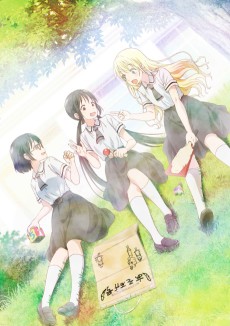 ANIME ComedyAsobi Asobase
ANIME ComedyAsobi Asobase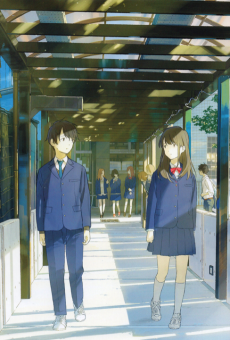 ANIME DramaTsuki ga Kirei
ANIME DramaTsuki ga Kirei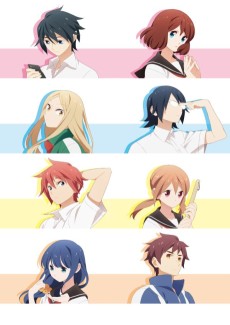 TV SHORT ComedyTsurezure Children
TV SHORT ComedyTsurezure Children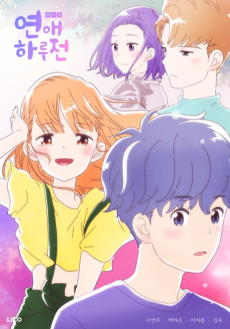 ONA RomanceYeonae Haru Jeon
ONA RomanceYeonae Haru Jeon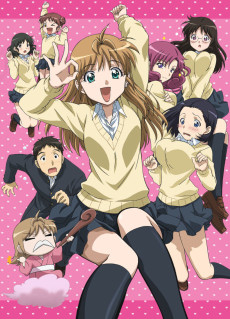 ANIME ComedyB Gata H Kei
ANIME ComedyB Gata H Kei ANIME ComedyLovely★Complex
ANIME ComedyLovely★Complex ANIME DramaNagi no Asukara
ANIME DramaNagi no Asukara
SCORE
- (3.6/5)
TRAILER
MORE INFO
Ended inSeptember 21, 2019
Main Studio Lay-duce
Favorited by 1,510 Users
Hashtag #荒乙


